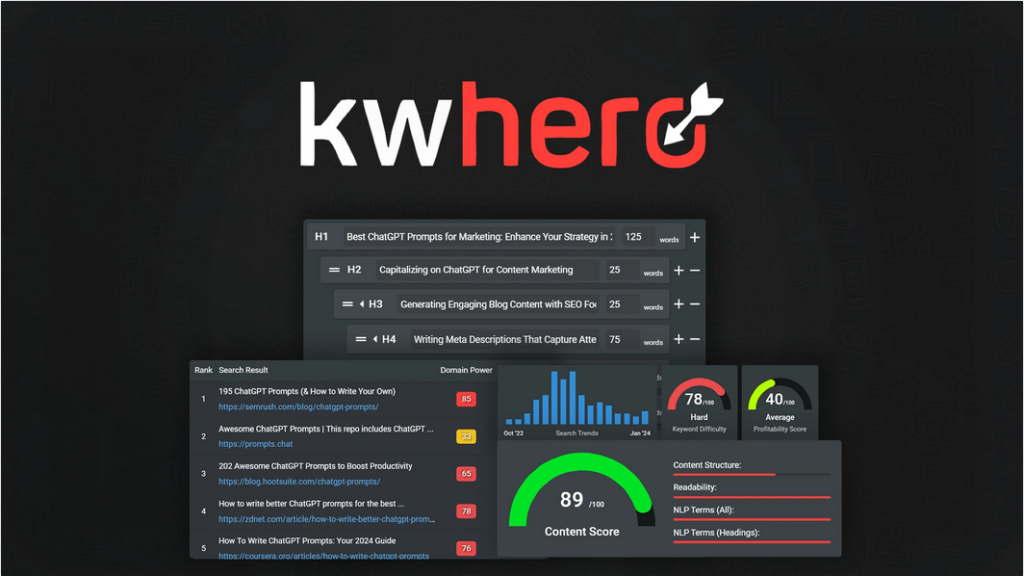Search Engine Optimization Checklist
Search Engine Optimization checklist is an essential tool for any website owner looking to improve their online visibility and increase their search engine rankings. By following a comprehensive seo checklist, you can ensure that your website is optimized for search engines and more likely to appear in relevant search results. From technical seo to on-page optimization, there are various aspects to consider when optimizing your site for search engines. This checklist can help you cover all the necessary steps to optimize your website for better visibility.
seo checklist
One of the key items on this seo checklist is keyword research. Identifying the right target keyword can help improve your chances of ranking higher in search engine results. Another important aspect is user experience, which can be enhanced through on-page seo checklist items such as title tags and meta descriptions. Additionally, internal links can help search engines better understand the content on each page on your site, leading to improved seo optimization.
technical seo
When it comes to technical seo checklist, tools like google search console and google analytics can provide valuable insights into how your website is performing. Using a free seo tool like yoast seo can also help you identify areas for improvement and track your progress over time. By following best practices and regularly updating your seo checklist, you can stay ahead of the game and continually optimize your website for better search engine rankings.
on-page seo checklist
Off-page seo checklist items, such as local seo and search intent, can also help search engines understand your website and improve its visibility in relevant search queries. By utilizing seo strategies and staying on top of the latest seo information, you can ensure that your website is always optimized for search engine crawlers and search engine results. Use this seo checklist for 2024 to help improve your seo and make it easier for search engines to find and rank your website.
Read about Search Engine Optimization courses
technical seo checklist
Search Engine Optimization (SEO) is crucial for any website that wants to enhance its visibility and ranking on search engines. By optimizing your website effectively, you can increase the likelihood of appearing higher in search results, driving more organic traffic to your site. To assist you in refining your SEO strategy, here is an in-depth checklist covering all the key areas you need to focus on:
1. Keyword Research
- Conduct thorough keyword research to identify relevant keywords related to your business or industry.
- Utilize tools like Google Keyword Planner, SEMrush, or Ahrefs to pinpoint high-volume keywords with low competition.
- Focus on long-tail keywords that are more specific and tailored to your target audience.
2. On-Page SEO
- Optimize your website’s title tags, meta descriptions, and headers with relevant keywords to improve search visibility.
- Ensure your website content is top-notch, engaging, and tailored for your target keywords.
- Implement internal linking to enhance website navigation and user experience.
- Optimize your images with descriptive alt text and file names for better search engine optimization.
3. Off-Page SEO
- Establish high-quality backlinks from reputable websites to boost your website’s authority and credibility.
- Utilize social media platforms to promote your content and actively engage with your audience.
- Monitor your online reputation closely and promptly respond to reviews and comments for positive brand perception.
4. Technical SEO
- Ensure your website is mobile-friendly and optimized for various devices and screen sizes.
- Enhance website speed and performance by optimizing images, minifying CSS and JavaScript, and leveraging browser caching.
- Develop an XML sitemap and submit it to search engines for efficient website crawling and indexing.
5. Local SEO
- Claim and optimize your Google My Business listing with accurate business information, photos, and reviews.
- Maintain consistency in your NAP (Name, Address, Phone Number) information across all online directories and listings.
- Encourage customers to leave reviews and ratings to boost your local search visibility.
6. Content Marketing
- Create high-quality, relevant, and engaging content that adds value to your audience.
- Utilize various content formats such as blog posts, videos, infographics, etc., to keep your audience engaged.
- Optimize your content for SEO by incorporating relevant keywords, internal links, and meta tags.
7. Analytics and Monitoring
- Set up Google Analytics to monitor website traffic, user behavior, and conversions effectively.
- Keep track of key performance indicators (KPIs) like organic traffic, bounce rate, and conversion rate.
- Use tools like Google Search Console to detect and rectify website errors and issues efficiently.
By adhering to this comprehensive SEO checklist, you can enhance your website’s visibility, attract more organic traffic, and ultimately generate more leads and conversions for your business. Remember, SEO is an ongoing process, so make sure to regularly monitor and optimize your website to stay competitive.
(*Please note that the above content is a sample article produced for the given title and may not necessarily reflect actual SEO strategies or recommendations.)
FAQ
- Why is keyword research important for SEO?
- Conducting keyword research helps identify relevant keywords related to your business or industry, allowing you to optimize your website for those keywords and improve your visibility in search results.
- How can I improve my website’s on-page SEO?
- To improve on-page SEO, optimize title tags, meta descriptions, and headers with relevant keywords, create high-quality and engaging content, use internal linking for navigation, and optimize images with descriptive alt text and file names.
- What is off-page SEO and how can I enhance it?
- Off-page SEO involves building high-quality backlinks, utilizing social media for content promotion, and monitoring online reputation by responding to reviews and comments promptly to improve website authority and credibility.
- What is technical SEO and why is it important?
- Technical SEO focuses on ensuring your website is mobile-friendly, optimized for different devices, and improving website speed and performance by optimizing images, minifying CSS and JavaScript, and creating an XML sitemap to help search engines crawl and index your site efficiently.


